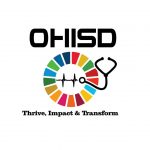Toolkit for managing and improving the quality of SRHR services in fragile and humanitarian settings during COVID-19 and future pandemics
In response to the COVID-19 pandemic, Share-Net International members Balanced Stewardship Development Association (BALSDA) and Organization for Health in Sustainable Development (OHISD) based in Nigeria and Cameroon respectively, have developed a toolkit for managing and improving the quality of SRHR services in fragile and humanitarian settings during COVID-19 and future pandemics.


Introduction
The global COVID-19 pandemic has significantly affected all aspects of humanity including education, livelihoods, health, and governance in all contexts of the world. The implications are worst in communities affected by conflict where health systems, social security and governance are weak. The COVID-19 pandemic and control measures have layered implications especially on internally displaced persons (IDPs) and refugees. People whose human rights are least protected are likely to experience unique difficulties. These include women, girls, and marginalized groups, IDPs and refugees who carry heavier burdens of economic and social consequences (McGinn, 2000). An SRHR and justice framework that centers on human rights acknowledges intersecting injustices, recognizes power structures and unites across identities is essential for addressing the inequitable gender, health, and social effects of COVID-19 (Wenham et al, 2000).
In fragile communities, many women and girls have fled their homes due to persecution, conflict, violence and human rights violations. They are more likely to have poor health outcomes, including SRHR, due to disrupted services, lack of health supplies, scarcity of trained health workers and increased risk of sexual violence. During conflict and natural disasters, access to health services often decreases while reproductive health needs increase and now with COVID-19, it is a double jeopardy on SRHR in fragile and humanitarian settings. In the face of the COVID-19 pandemic all women and girls, especially vulnerable ones in fragile settings, are at risk of unwanted pregnancy, unsafe abortion, sexual violence and increased morbidity and mortality due to poor access to critical SRHR services. Old SRHR policies need to be reviewed to ensure that their implementation speaks to attainment of good outcomes in fragile and humanitarian settings during the COVID-19 pandemic.
About this toolkit
This knowledge product (toolkit) uses information synthesized from research to provide programmatic guidance to help provide, improve on and maintain essential preventive, promoting and curative sexual and reproductive health and rights (SRHR) information and services in fragile/humanitarian settings during the COVID-19 pandemic outbreak period, as well as other epidemics in the future. The toolkit helps identifying population vulnerabilities, peculiarities of the target population, identified program gaps, and showcases research evidence for best practices, lessons learnt from other pandemics and general guidance for the continuation of sexual and reproductive health (SRH) services, information and infection prevention and control.
Who this toolkit is meant for
This toolkit is meant for all stakeholders working in fragile countries that require humanitarian assisstance. It cuts across funding and donor organizations, multinational organizations, philantropists and all organizations who fund and support programs among these communities. It is also useful for SRHR program planners, implementers, aid and humanitarian program managers as well as health workers working among women and young people in these environments. It is also useful to governments at Federal, State and Local government levels as well as all the Ministries, Departments and Agencies that cut across Maternal, Neonatal, Newborn and Child health in low and middle income countries (LMICs). The National Centers for Disease Control and Ministries of Health at all levels will benefit from its guidance for infection control and SRH service delivery among these special communities. Civil Society Organizations (CSOs), Researchers, Community Resource Persons and community leaders will find it a useful resource before, during and after pandemics.
Access to toolkit
Access the full toolkit here.
This project was financed by Share-Net International.